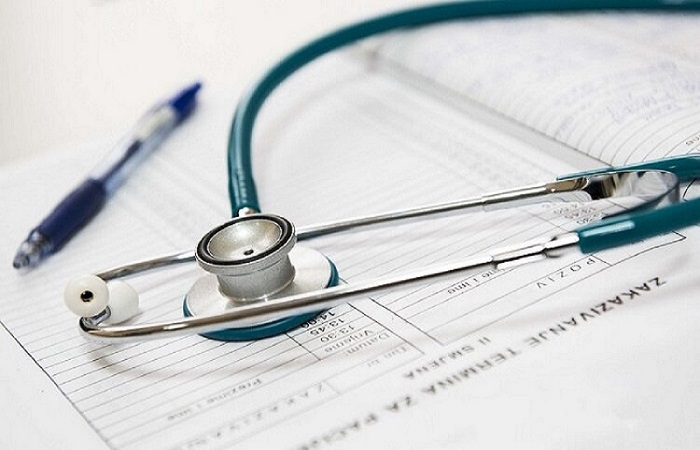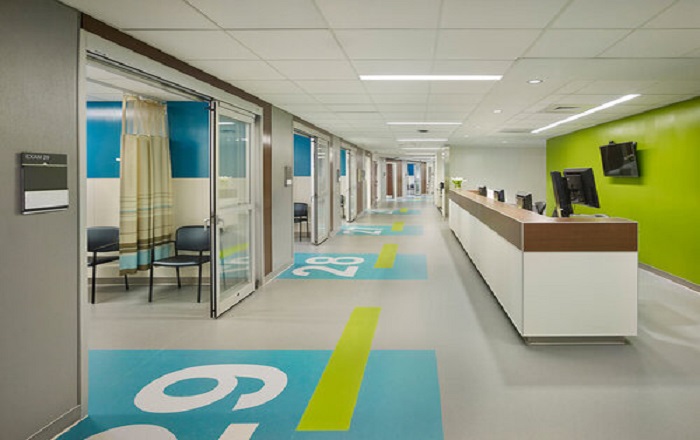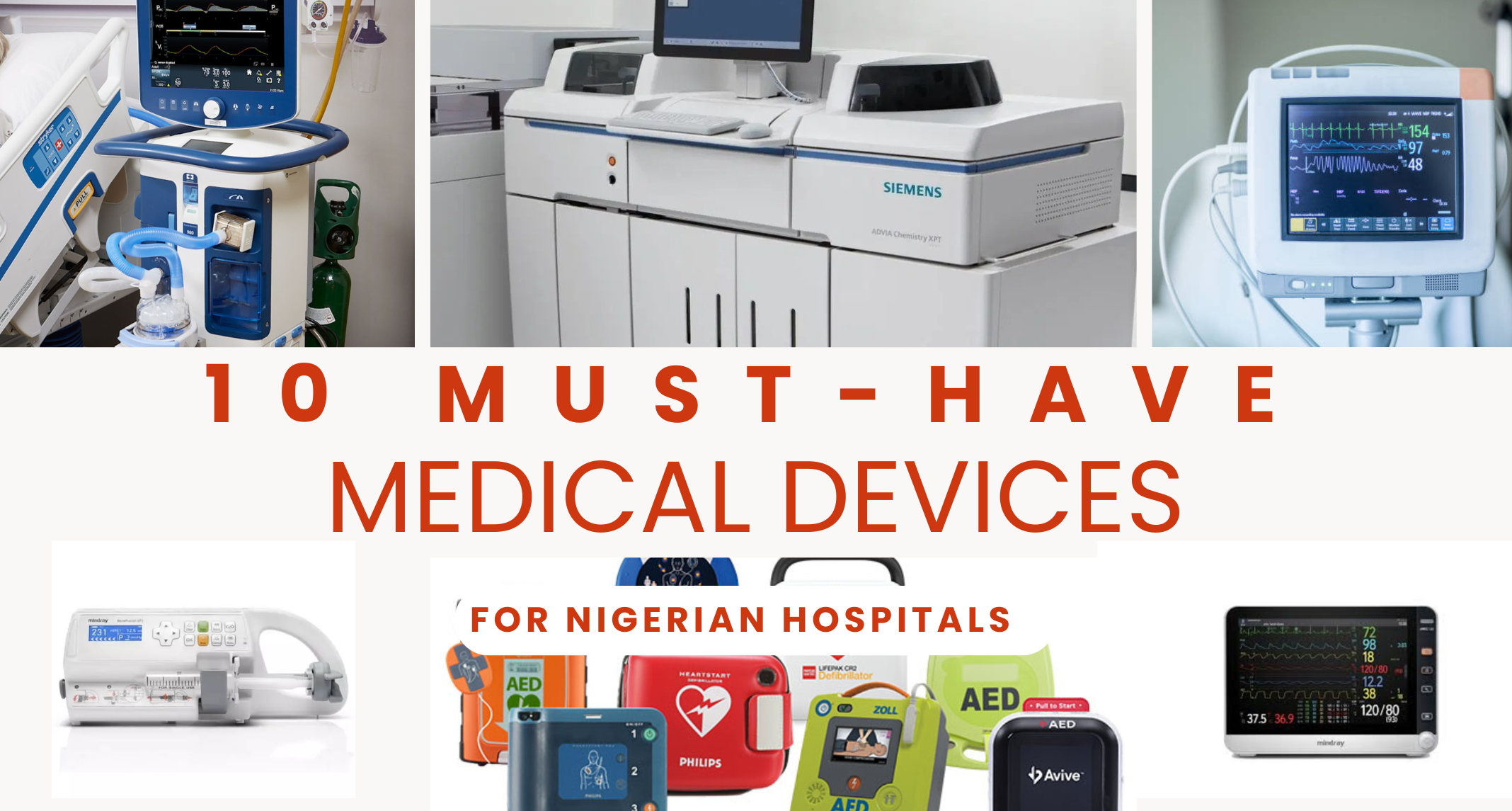
Nigeria’s healthcare industry has made significant strides in recent years, focusing on improving the quality and accessibility of medical services. A vital element in this growth has been the integration of top medical devices. These advanced technologies enhance diagnostic accuracy, treatment efficacy, and overall patient care.
These top medical devices are indispensable for providing high-quality care and have proven their value in improving healthcare outcomes globally. Below are 10 essential top medical devices every modern hospital in Nigeria should prioritize:
1. Automated External Defibrillators (AEDs)
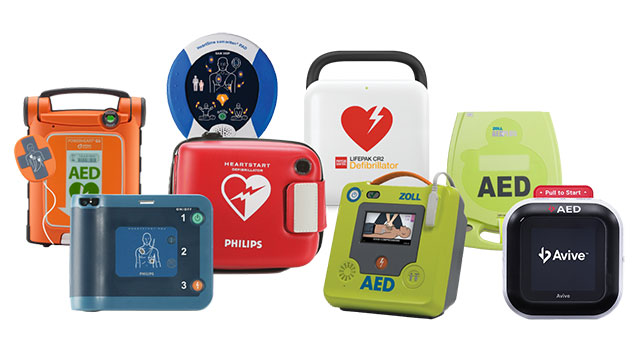
Automated External Defibrillators are designed to analyze the heart rhythm and deliver an electric shock to victims of ventricular fibrillation. This restores the heart rhythm to normal, and they are life-saving devices used to treat sudden cardiac arrest. They are designed to be simple enough for bystanders to use in emergencies. In countries like the US and Japan, AEDs are widely available in public spaces, significantly increasing survival rates. For Nigeria, having AEDs readily available in hospitals, especially in emergency departments, is crucial for swift cardiac emergency response.
2. Ultrasound Machines
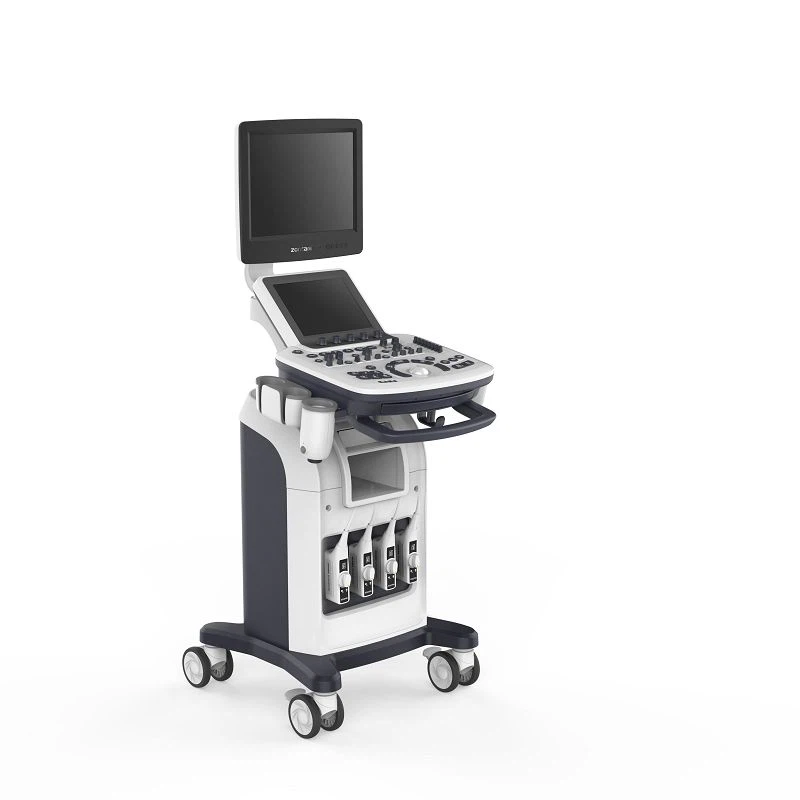
Ultrasound machines are indispensable for non-invasive imaging, especially in obstetrics, gynecology, cardiology, and general diagnostics. TThey use high-frequency sound waves to create images of internal body structures. These machines have revolutionized maternal care and fetal health monitoring, especially in rural and urban Nigerian hospitals. Hospitals investing in quality ultrasound machines report better prenatal care and early disease detection.
3. Infusion Pumps
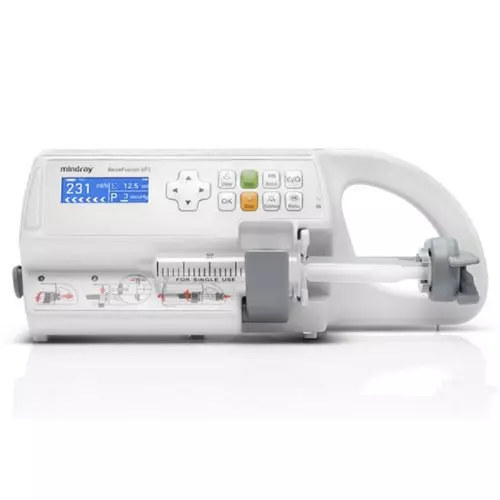
An infusion pump delivers controlled amounts of fluids, such as nutrients and medications, into a patient’s body. These devices are vital in managing critical care, chemotherapy, and pediatric care patients. In countries like the UK and Germany, infusion pumps are standard in all hospitals. They contribute to precise drug administration and reduce the risk of overdose or underdose. In Nigeria, the adoption of advanced infusion pumps as standard medical devices can significantly improve patient safety and treatment outcomes.
4. Patient Monitors
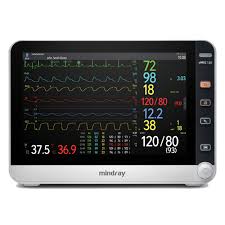
Patient monitors use particular kinds of sensors to track and monitor specific areas and vital signs of a patient. Monitoring vitals such as heart rate, blood pressure, and oxygen saturation provides continuous real-time data. These are crucial in intensive care units (ICUs) and emergency rooms. Hospitals in countries like Canada have reduced mortality rates by utilizing advanced patient monitoring systems. These alert healthcare providers to critical changes in a patient’s condition. It is an integral part of any modern hospital.
5. Digital X-ray Machines
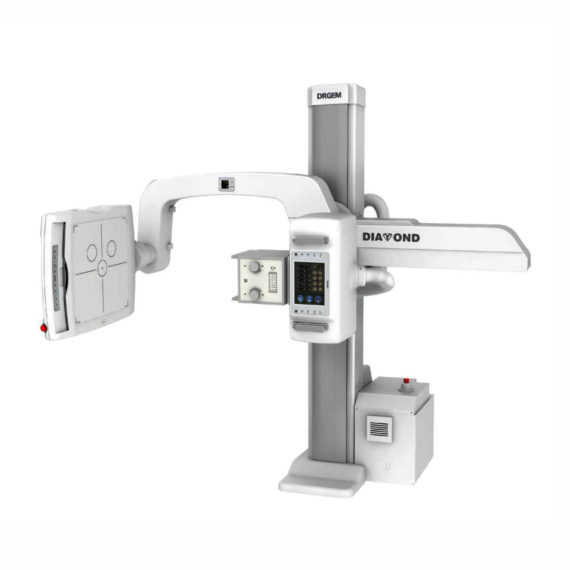
A digital X-ray utilizes digital sensors instead of photographic film used in traditional X-ray. They are essential for accurate imaging of bones and internal organs and offer superior image quality. They have faster processing times and reduced radiation exposure compared to traditional film X-rays. The Nigerian hospitals that have integrated digital X-ray technology report quicker diagnoses and better patient throughput.
6. Electrocardiogram (ECG) Machines
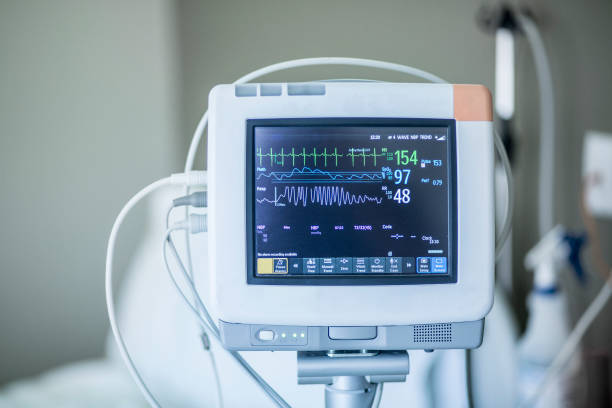
An electrocardiogram (ECG or EKG) is a quick test to diagnose heart conditions by checking the heartbeat. It records the heart’s electrical signals and activity. With the rise in cardiovascular disease diagnoses, having ECG machines in every hospital is crucial for timely diagnosis and intervention.
7. Ventilators
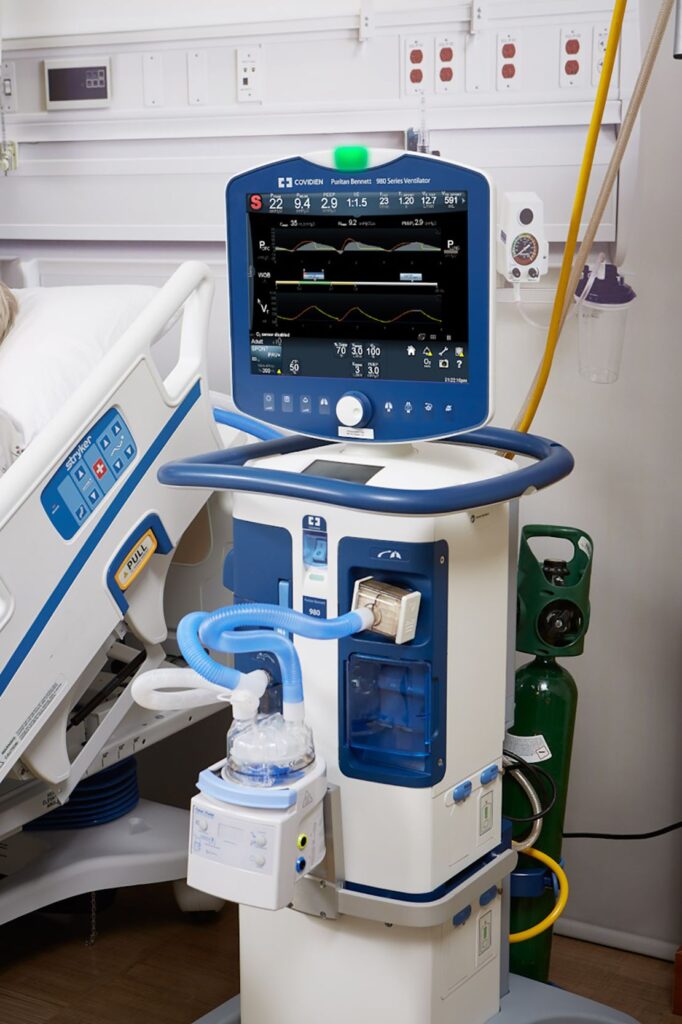
Ventilators are a type of breathing apparatus that help keep your lungs working. They provide critical support for patients who are unable to breathe on their own. The COVID-19 pandemic underscored the importance of ventilators in saving lives during respiratory crises. Nigerian hospitals have recognized the need for more ventilators, not just for pandemics but for general critical care. This is particularly for patients with respiratory illnesses.
8. Dialysis Machines
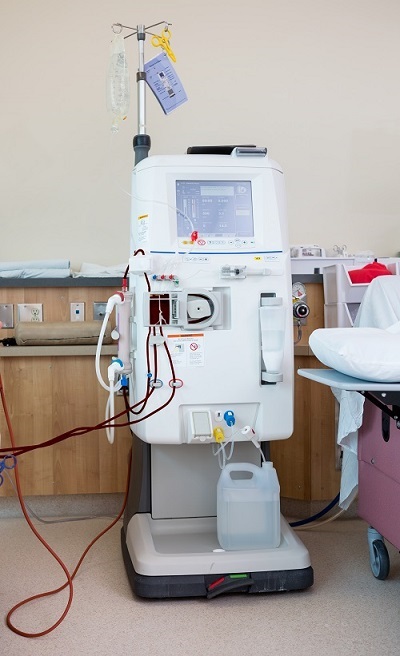
A dialysis machine consists of a blood pump and a dialysate pump, used during hemodialysis procedures. They filter the patient’s blood, and are vital for patients with kidney failure, providing life-sustaining treatment by filtering & purifying blood. The increasing prevalence of diabetes and hypertension has led to a growing demand for dialysis services. This makes it essential for hospitals to equip themselves with modern dialysis machines.
9. Surgical Microscopes
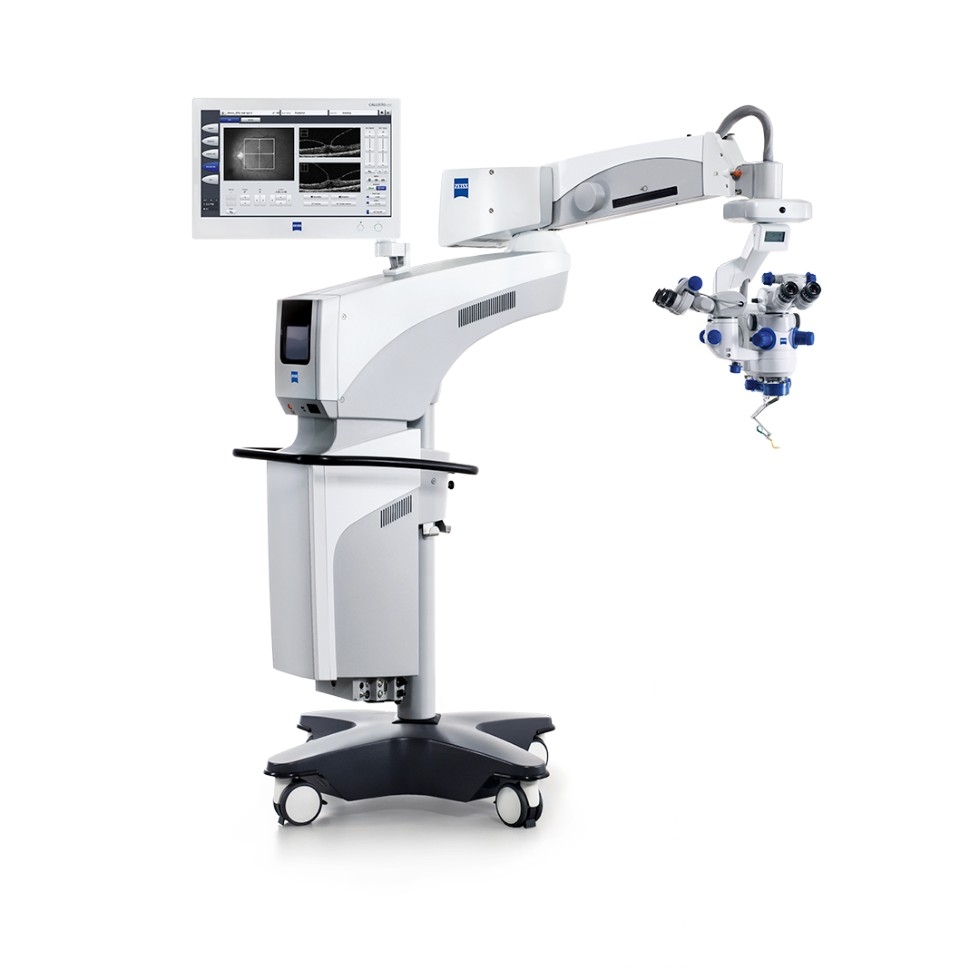
Surgical Microscopes are used to repair or reconstruct microscopic parts of the lymphatic system, nerves, or blood vessels. They are used in various specialties such as neurosurgery, ophthalmology, and ENT (ear, nose, throat) surgeries. These devices enhance precision during complex procedures. In countries like Japan, advanced techniques are common, and the use of surgical microscopes result in better and faster surgeries. Hospitals that have adopted this technology report similar improvements, particularly in delicate surgeries that require high magnification.
10. Automated Laboratory Analyzers
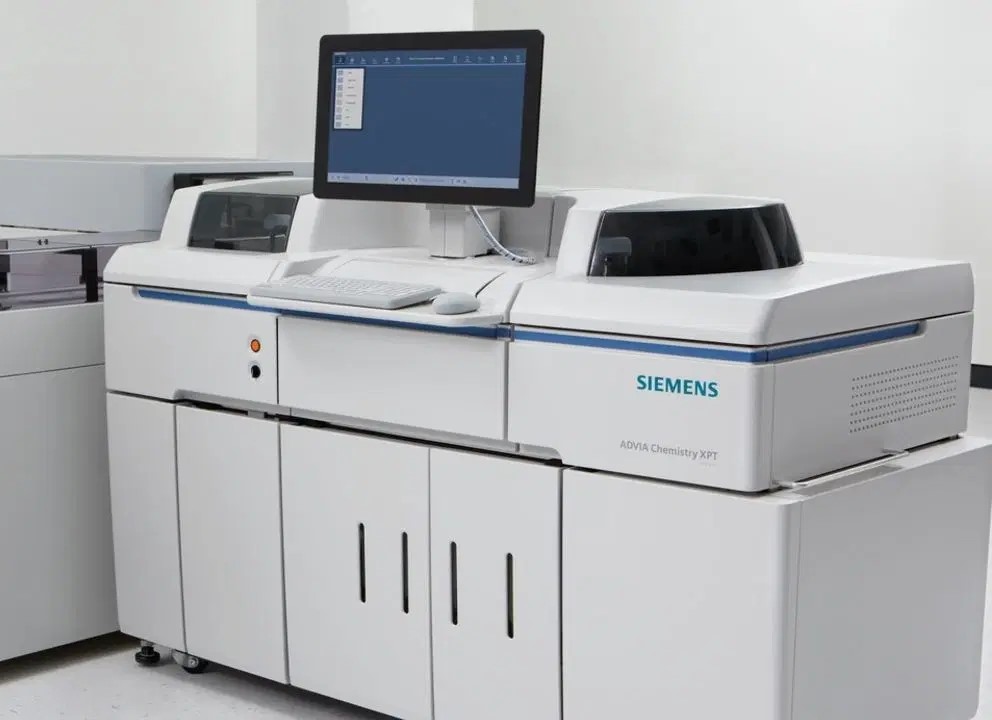
Automated analyzers are machines that can automatically perform biochemical tests on blood, body fluids, or other samples quickly and accurately. These devices are essential in diagnosing diseases, monitoring health conditions, and guiding treatment decisions.
To Elevate Nigeria’s Healthcare Standard
As Nigeria continues to enhance its healthcare infrastructure, the adoption of top medical devices is essential. Investing in these devices will ensure that patients receive the best possible care, improve health outcomes, and reduce mortality rates. By adopting global best practices and integrating these top medical devices, Nigerian hospitals can build a more resilient healthcare system.
For more information on medical equipment and purchasing options, visit Sariva Healthcare.

